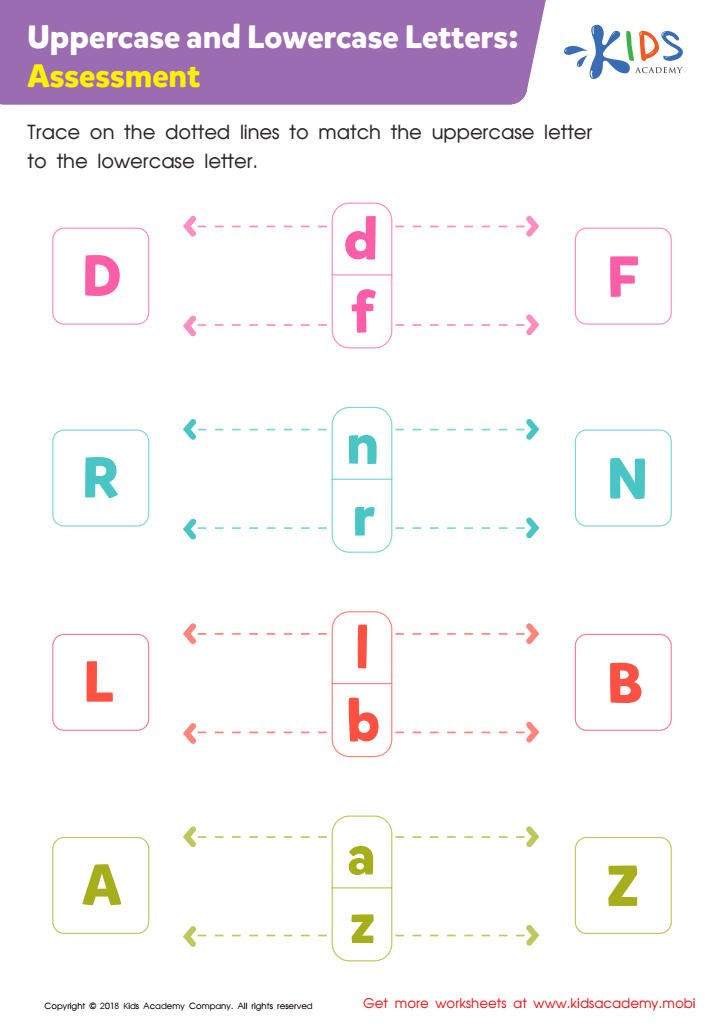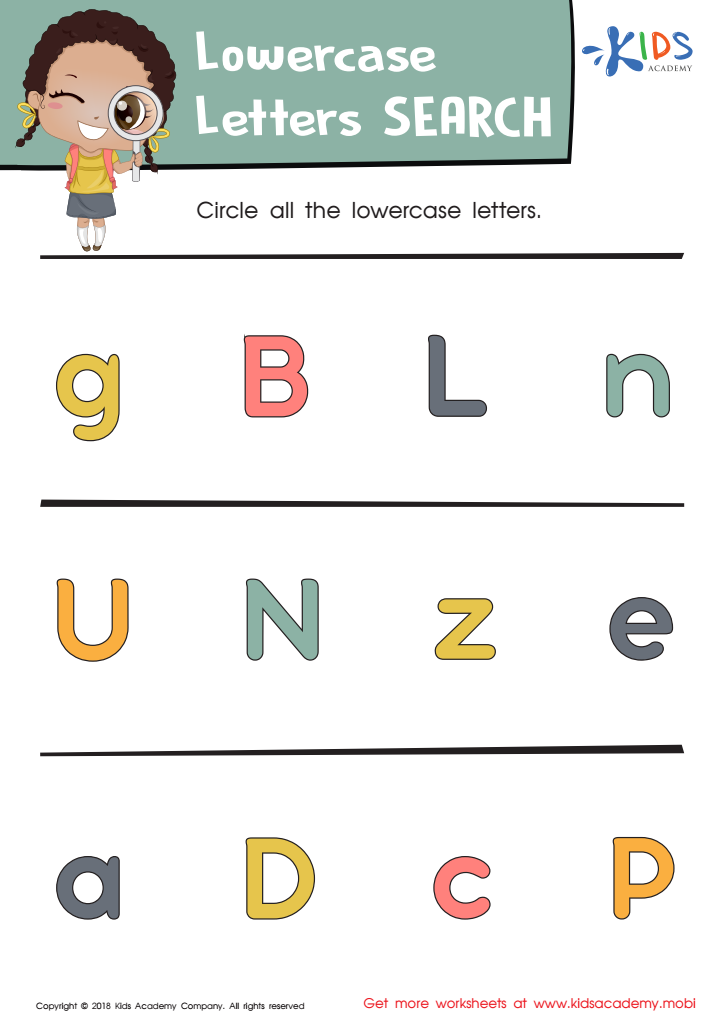Upper & Lowercase Letters worksheets activities for 5-Year-Olds
2 filtered results
-
From - To


Uppercase and Lowercase Letters: Assessment Worksheet


Lowercase Letters Search: Assessment Worksheet
Upper & Lowercase Letters worksheets activities are an invaluable tool in the foundational stage of literacy development for young learners. The importance of these activities cannot be overstated, as they serve as the building blocks for reading, writing, and overall communication skills. Here's why these worksheets are so useful:
First and foremost, Upper & Lowercase Letters worksheets activities help in distinguishing between uppercase and lowercase letters, a crucial skill in understanding the English language. This distinction is not just about learning two different forms of each letter but also about recognizing that the same letter can have different appearances based on its position in a word or sentence. This awareness is fundamental for reading fluency and comprehension.
Moreover, these activities enhance fine motor skills. As children trace, write, and color letters in various activities, they develop their hand-eye coordination and pencil grip. This practice is pivotal for young learners as it prepares them not only for writing tasks in their future academic journey but also for tasks that require precision and care in everyday life.
Additionally, Upper & Lowercase Letters worksheets activities introduce children to the concept of alphabetical order. Understanding this sequence is not only crucial for dictionary skills and indexing but also aids in developing organizational skills from an early age. By engaging with these worksheets, children learn how to sort, categorize, and retrieve information effectively.
Furthermore, these activities are designed to be engaging and fun, turning the learning process into an enjoyable experience. Whether the worksheets incorporate coloring, matching, or puzzle-solving, they captivate children’s interest, encouraging them to learn through play. This approach boosts their confidence and fosters a positive attitude toward learning.
In conclusion, Upper & Lowercase Letters worksheets activities are a cornerstone in the early education curriculum. They lay a solid foundation for reading and writing, enhance fine motor skills, introduce organizational concepts, and make learning an enjoyable journey. By integrating these activities into the learning process, educators and parents can ensure a holistic development of their young learners.
 Assign to the classroom
Assign to the classroom











